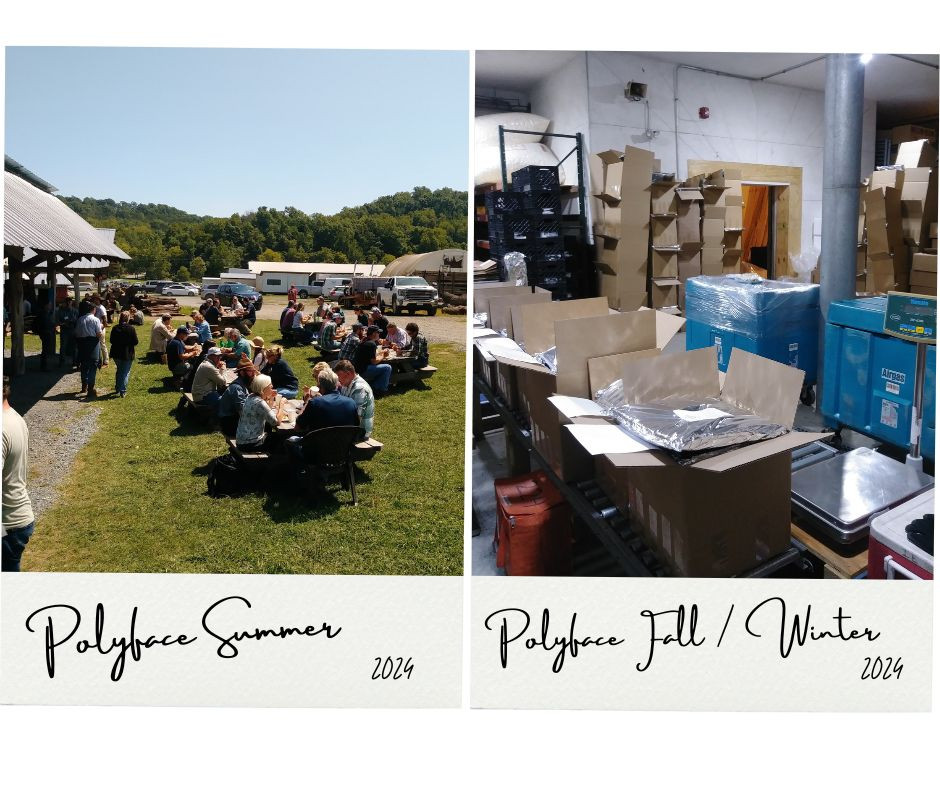Seasons Change
posted on
December 17, 2024
Farmers are well acquainted with the seasonal ebb and flow of work.
Over the course of a year, the pace and tone of agricultural activities change. My role at the farm also shifted with the passing of seasons.
October 1st marked the end of our summer at Polyface. This is when we bid farewell to our summer stewards and begin our fall and winter routines.
My job transitioned from being the summer chef to assisting with shipping and inventory.
My first week back in the shipping department was a blast! I was surprised with just how natural such a dramatic shift in work felt.
How was it that reverting back to my shipping role was so fulfilling?
I know there are multiple factors to this, but one of the biggest ones is that I am essentially doing the same thing.
While peeling potatoes in the kitchen and labeling boxes in a warehouse seem very unrelated, both are bringing food to people.

Being able to work within my calling as both a chef and shipping assistant has been very grounding and personally gratifying.
What about you?
Are you a farmer whose work is intrinsically tied to the changes in weather?
Are you a person who holds seasonal positions?
Perhaps you are someone who rarely has a change of pace in their work but longs for that.
Maybe, on a personal level, this season for you has been really long or hard. (If so, a not-so-well-known country song comes to mind, "Seasons Change", by Scotty McCreery. This song may or may not have kept me going through the doldrums of college.)
Seasons do change; that is the way God designed the natural world to work. If your season is not changing, perhaps consider ways you might encourage that change. Also keep in mind that if you do this current season well, when the time is right, your next season will come.
Here at Polyface, we embrace the seasons - it's built into our very farming model because we believe this is what we were created for; it's what our bodies, our hearts, and our Earth need.
We hope you enjoy this season. As you know, we're all taking a bit of a break for the rest of the year. Be assured that we're still taking care of the animals every day and we're still making plans for 2025 to be even better. We hope you'll partner with us next year to make the world a little better and a little brighter.
- Melissa




